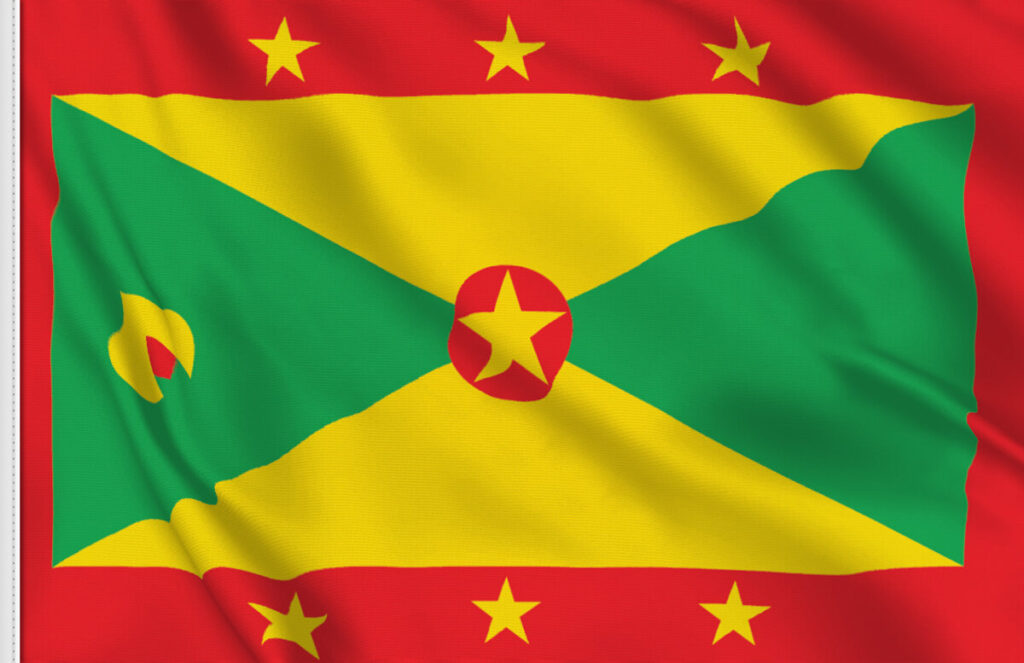
Here is an overview of Grenada and its capital, St. George’s:
General Information:
- Official Name: Grenada
- Capital: St. George’s
- Official Language: English (with Grenadian Creole English and Creole French widely spoken)
- Currency: Eastern Caribbean Dollar (XCD)
- Population: Approximately 125,000 (as of 2023)
- Area: 348.5 square kilometers (134.6 square miles)
- Location: An island country in the southeastern Caribbean, part of the Lesser Antilles. Grenada is often referred to as the “Island of Spice” due to its large production of nutmeg and mace.
Geography:
- Main Islands: Grenada is the largest island in the country, accompanied by smaller islands like Carriacou and Petite Martinique.
- St. George’s is located on the southwestern coast of Grenada, known for its horseshoe-shaped harbor and picturesque scenery.
- The island is mountainous, featuring rainforests, waterfalls, and volcanic craters such as Grand Etang National Park.
History:
- Pre-Colonial Era: Originally inhabited by the indigenous Arawak and later the Kalinago (Carib) peoples.
- Colonial Period:
- Sighted by Christopher Columbus in 1498, but colonized later by the French in 1650.
- The British took control in 1763 under the Treaty of Paris.
- Grenada became a major producer of sugar, cocoa, and spices during the colonial period.
- Independence:
- Gained independence from Britain on February 7, 1974, becoming the smallest independent country in the Western Hemisphere at the time.
- The country experienced political turmoil in the 1980s, including a U.S.-led invasion in 1983 to restore order after a coup.
Political Structure:
- Government: Unitary parliamentary democracy and constitutional monarchy.
- Head of State: King Charles III, represented by the Governor-General (currently Cécile La Grenade, as of 2023).
- Head of Government: The Prime Minister (currently Dickon Mitchell).
- Legislature: Bicameral Parliament, consisting of the Senate and the House of Representatives.
Economy:
- Main Industries:
- Agriculture (notably nutmeg, cocoa, and bananas).
- Tourism, focusing on eco-tourism, diving, and yachting.
- Light manufacturing and offshore financial services.
- Challenges:
- Vulnerability to hurricanes, such as Hurricane Ivan in 2004, which caused widespread destruction.
Culture:
- National Festivals:
- Spicemas Carnival: Celebrated annually with colorful parades, calypso, and soca music.
- Music and Dance: Includes calypso, soca, and reggae, with African and French influences.
- Cuisine:
- Features dishes like oil down (the national dish), breadfruit, callaloo soup, and spicy stews.
- Religion: Predominantly Christian, with Roman Catholicism being the largest denomination.
St. George’s – The Capital:
- Founded: By the French in 1650.
- Significance: The capital is the cultural, economic, and administrative center of Grenada.
- Features:
- Carenage: A scenic harbor area with historic buildings and bustling markets.
- Fort George: A 17th-century fort offering panoramic views of the city.
- Grenada National Museum: Showcasing artifacts from the island’s indigenous, colonial, and revolutionary history.
- Grand Anse Beach: A nearby white-sand beach popular with tourists.
Interesting Facts:
- Grenada is one of the world’s largest exporters of nutmeg, earning its nickname, the “Island of Spice.”
- It is home to the world’s first underwater sculpture park, located off the coast of Molinere Bay.
- St. George’s is considered one of the most picturesque capitals in the Caribbean, with its colorful homes, lush surroundings, and vibrant harbor.


